
Almost 1,000 years ago, a monk named Brother Eilmer became obsessed with flying. Eilmer lived at the Abbey of Malmesbury in Wiltshire, England. He studied how birds flew and was sure he could become airborne, too. He made wings for himself. He stretched linen over a lightweight willow frame and carefully glued duck and chicken feathers onto the cloth. He then climbed the abbey’s tower and jumped. Instead of flying, Eilmer plunged to the ground below and was hurt badly.
Other “tower jumpers” kept trying to make flight a reality. They too made wings, hoping to catch the wind and take off in flight. Some would glide a few seconds before crashing. Others were injured or fell directly to their deaths.
Two French brothers took a different approach to flying during the 1780s. Joseph-Michel and Jacques-Étienne Montgolfier were papermakers. They got their idea after watching bits of wood and paper rise from the heat of their fireplace. They built a huge fabric balloon and attached a basket underneath. In September 1783, they put a sheep, a duck, and a rooster in the basket. Heated air raised the balloon up into the sky and then landed it safely in a nearby field. The animals made history as the first passengers of a hot-air balloon flight.
This story is from the November/December 2023 edition of Cobblestone American History Magazine for Kids.
Start your 7-day Magzter GOLD free trial to access thousands of curated premium stories, and 9,000+ magazines and newspapers.
Already a subscriber ? Sign In
This story is from the November/December 2023 edition of Cobblestone American History Magazine for Kids.
Start your 7-day Magzter GOLD free trial to access thousands of curated premium stories, and 9,000+ magazines and newspapers.
Already a subscriber? Sign In
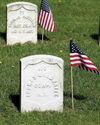
Putting the Pieces Together
Americans needed to begin to put the past behind them, come together, and plan for the future in the spring of 1865. But Abraham Lincoln, the man best equipped to lead them and who had hoped to restore the country as smoothly and peacefully as possible, had been assassinated.
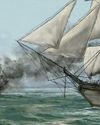
LAST SHOTS
The last Confederate forces in the Civil War didn’t surrender in the spring of 1865 or on a battlefield.
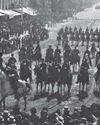
AND IN OTHER 1865 NEWS
A group of African Americans stop at the White House’s annual public reception on January 1, where they shake hands with President Abraham Lincoln.
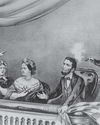
A Plot to Kill President the
For several months, actor John Wilkes Booth’s band of conspirators had plotted to capture President Abraham Lincoln and hold him hostage in exchange for Confederate prisoners.
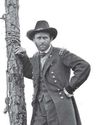
Let the Thing Be Pressed
In June 1864, Union Lieutenant General Ulysses S. Grant began a nearly 10-month campaign in Virginia.
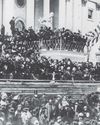
HEALING THE NATION
President Abraham Lincoln took the oath of office for the second time on March 4, 1865.

A Helping Hand
The spring season is hard in any agricultural society. Plants and animals are too small to eat.
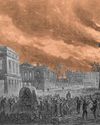
WAR SHERMAN-STYLE
As far as Union Major General William T. Sherman was concerned, the Civil War had gone on long enough.
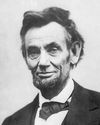
PEACE TALKS
The fall of Fort Fisher made clear that the Confederacy’s days were numbered. Southerners were tired and hungry.
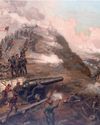
FORT FISHER'S FALL
Outnumbered Confederate soldiers inside Fort Fisher were unable to withstand the approach of Union troops by land and the constant Union naval bombardment from the sea.